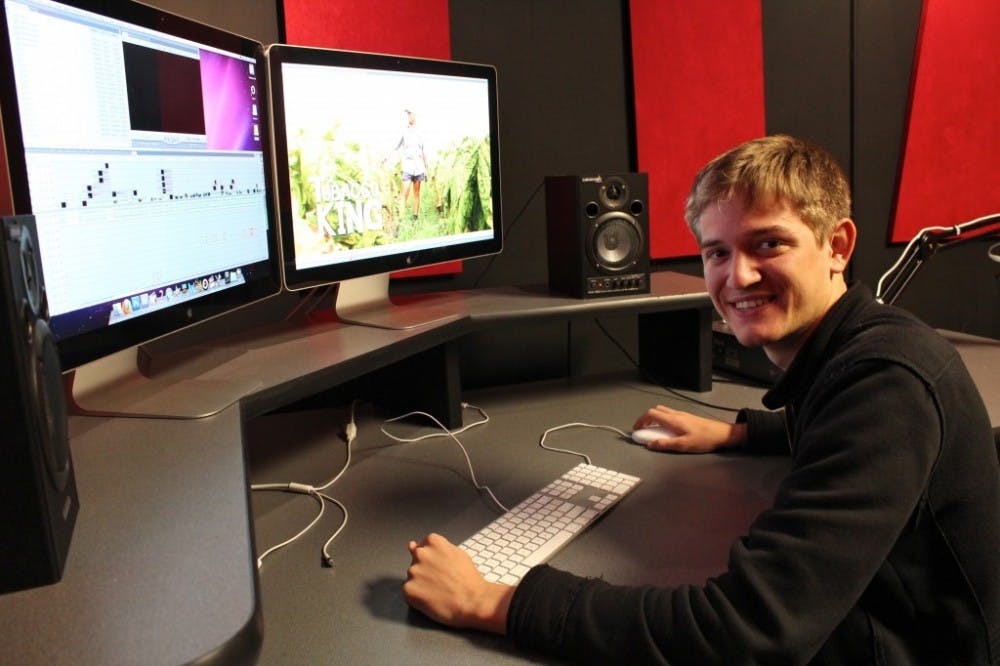When Dan Koehler was awarded the Lumen Prize in 2010, he knew he’d be headed to Africa. Now, the fruits of the Elon University senior’s labor will be shown to audiences April 15 during the RiverRun International Film Festival in Winston-Salem.
Koehler used the $15,000 scholarship to produce “The Tobacco King,” a documentary film whose debut at RiverRun will be just one link in a chain of recent achievements. The film was chosen as an Ivy Film Festival 2012 finalist and won first place in the Broadcast Education Association’s long-form student documentary competition.
“The Tobacco King” centers on white farmer George Botha, who handles numerous problems in Zambia as he confronts memories from his past and clashes with his 200-person workforce.
[box]Tobacco King trailer
The Tobacco King Trailer from Daniel Koehler on Vimeo.
[/box]
“(Botha is) cultivating a new livelihood in Zambia following a racially charged and violent land reform program that robbed him of his home in Zimbabwe,” Koehler said.
Koehler spent time in and out of Zambia during a course of seven months, interviewing Botha and his workers as well as local experts, all while editing the footage he collected. After initially traveling to Zambia for research and development, he returned in the spring of his junior year to embark on the field work.
Koehler, who lived in Uganda with his family for 10 years as a child, was more than excited to relive the experience while filming “The Tobacco King,” channeling memories from his youth.
“I think what I love most about Zambian culture — and this is similar all across sub-Saharan Africa — is this idea of relationships and people are very centered on other people, so it’s a very social and human-focused culture and I love that,” Koehler said.
Koehler eventually decided to focus his documentary on the social aspect of Zambia’s culture, but he said it proved difficult to initially establish relationships with the Zambian people.
“I was an outsider from the United States, coming in with a camera,” Koehler said. “It’s not very easy to get people to trust you. I like to think that I’m generally genuine in my interests and I listen to people, which I think helps to establish relationships that lead to good conversations, that lead to good footage and ultimately that lead to a good documentary.”
Koehler said the farm workers did not trust him at first, but in a pivotal moment, they invited him into the compound for lunch. He was the first white person to ever eat lunch inside the compound — he thinks this is when they realized he cared about the workers as much as he cared about Botha.
Koehler did most of the initial editing while in Zambia, but completed the film during the fall of 2011. He gives credit to numerous communications professors for helping him navigate not only the editing process, but also applying to film festivals, making a poster and creating a website.
“Brooke Barnett is my mentor for Lumen and my thesis project,” Koehler said. “She has been just so amazing in terms of facilitating my development as a filmmaker but also as an individual.”
Barnett, associate professor of communications, said working with Koehler was an experience she truly enjoyed.
“Dan is an amazing filmmaker and human being,” Barnett said. “His empathy will be an asset in his filmmaking career. It has been a pleasure working with him.”
Koehler said he was honored to be selected for the RiverRun International Film Festival, which issued more than 14,000 tickets last year. He said the process of distribution and selection often proves difficult and a full-time job.
[quote]Things are panning out in ways that I could not have imagined four years ago as a freshman. -Daniel Koehler,senior[/quote]
“You’ve got to fill out forms and send out DVDs, and then you cross your fingers and hope for the best,” Koehler said. “Eventually, months later, you hear from these people and it’s either ‘yes’ or ‘no.’ A lot of the times you get ‘no,’ but sometimes there are yeses. Those are good moments and you’ve got to celebrate those moments.”
Koehler will continue to work on documentary projects until graduation in May, after which he will work with two-time Academy Award nominee and filmmaker Marshall Curry. He held an internship with Curry in January, and after getting to know Curry and his wife, was offered a full-time job.
“In the space of three months, I went from jobless and not knowing what was going to go on, to being in this situation,” Koehler said. “Things are panning out in ways that I could not have imagined four years ago as a freshman.”
Koehler will be doing what he calls “producer-type stuff,” as well as accompanying Curry on film shoots and helping with the creative process. He said he is mostly excited to learn about the non-creative aspect of documentary filmmaking.
“The Tobacco King” will also be screened during Elon’s CELEBRATE! week at the end of April, during which the Elon community can see what Barnett calls Koehler’s “stunning visual eye.”


